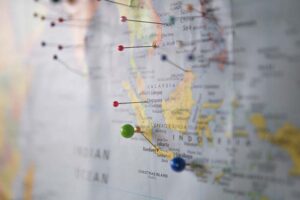Strategic Lawsuits Against Public Participation (SLAPPs) are increasing at a worrying rate. Companies use these lawsuits to harass and silence human rights defenders (HRDs) who expose harm caused by business operations.
According to the Business & Human Rights Resource Centre (BHRRC), cases of judicial harassment rose globally from 86 in 2015 to 294 in 2019. This is an annual average growth rate of 48%.
In the face of challenges such as climate change and modern slavery, the work of HRDs is more important than ever to ensure that businesses are sustainable and ethical.
Ryan Vong Junying and I recently completed a Malaysia country report commissioned by BHRRC. We analysed SLAPPs and SLAPPs-like cases, and made some recommendations.
We highlighted three cases:
- Raub Australian Gold Mining Sdn Bhd v. Hue Shieh Lee
- Asahi Kosei Sdn Bhd v. Charles Hector Fernandez
- PDZ Holdings Bhd v. The Edge Communications Sdn Bhd & Others
These cases together with six others in Thailand and Indonesia are featured in BHRRC’s Corporate Legal Accountability Annual Briefing — Defending Defenders: Challenging Malicious Lawsuits in Southeast Asia released in March 2020. The executive summary can be accessed here, and from BHRRC’s website.
The report made far-reaching recommendations for governments, companies, investors, lawyers, and civil society.
As with measures to control and mitigate the effects of COVID-19, SLAPPs must be met with a whole-of-society approach. Raising issues of compliance with environmental and labour laws should not be penalised. Governments must enact anti-SLAPPs legislation to protect HRDs. Where anti-SLAPPs provisions do not exist, companies and civil society should take the responsibility to defend the important work of HRDs.




